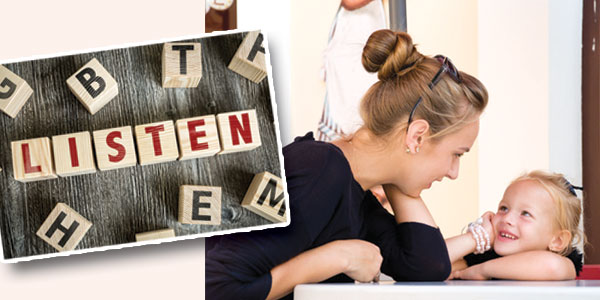 |
Lisa Navarra M.A. Special Education
|
|
Have you ever tried speaking to someone who seemed too busy to really listen? Someone who doesn’t seem to really care? They may have been looking at the phone, distracted by their surroundings or lost in their own thoughts and only mustered up a darting glance and a passing comment. A darting glance that was just enough to keep you talking and continuing to make your point. Maybe they said the "uh-huh's," "really," and "I can't believe that" at just the right time during the conversation but in actuality their attention was anywhere, but paying attention to what you were really saying. When it's all over, you may not want to admit to yourself, but you don't really feel heard. As a mater of fact you may feel insulted, alone and your day just got even worse! Well, not only do many people not realize that when "listening" to someone else they may not be listening at all. The typical listener slips into thinking about what he/she wants to say in response to what is being said to them. In contrast, a good listener will focus his/her attention onto what you are trying to say, your feelings, your perception and your overall message. Being that there seems to be few times that people will give of themselves and be all about the other person is rare. Now compound that with many people being distracted, busy and overwhelmed with the demands of life and work and you're sure to get an "Uh-huh", or "I can't believe that!" from time to time. Four easy tips for the listener to make the speaker feel heard and important: 1. Establish eye contact. Five easy tips for the speaker to engage the listener: 1. Look at who you are speaking with. I hope this helps you become a little more aware and above all important and valued! |
|












 20 lucky winners will win $500 each in prizes totaling $10,000.
20 lucky winners will win $500 each in prizes totaling $10,000. 